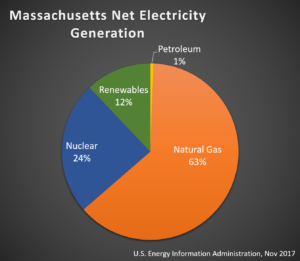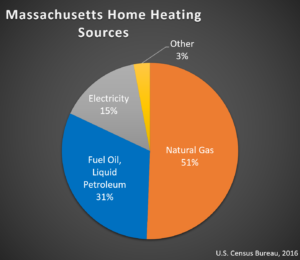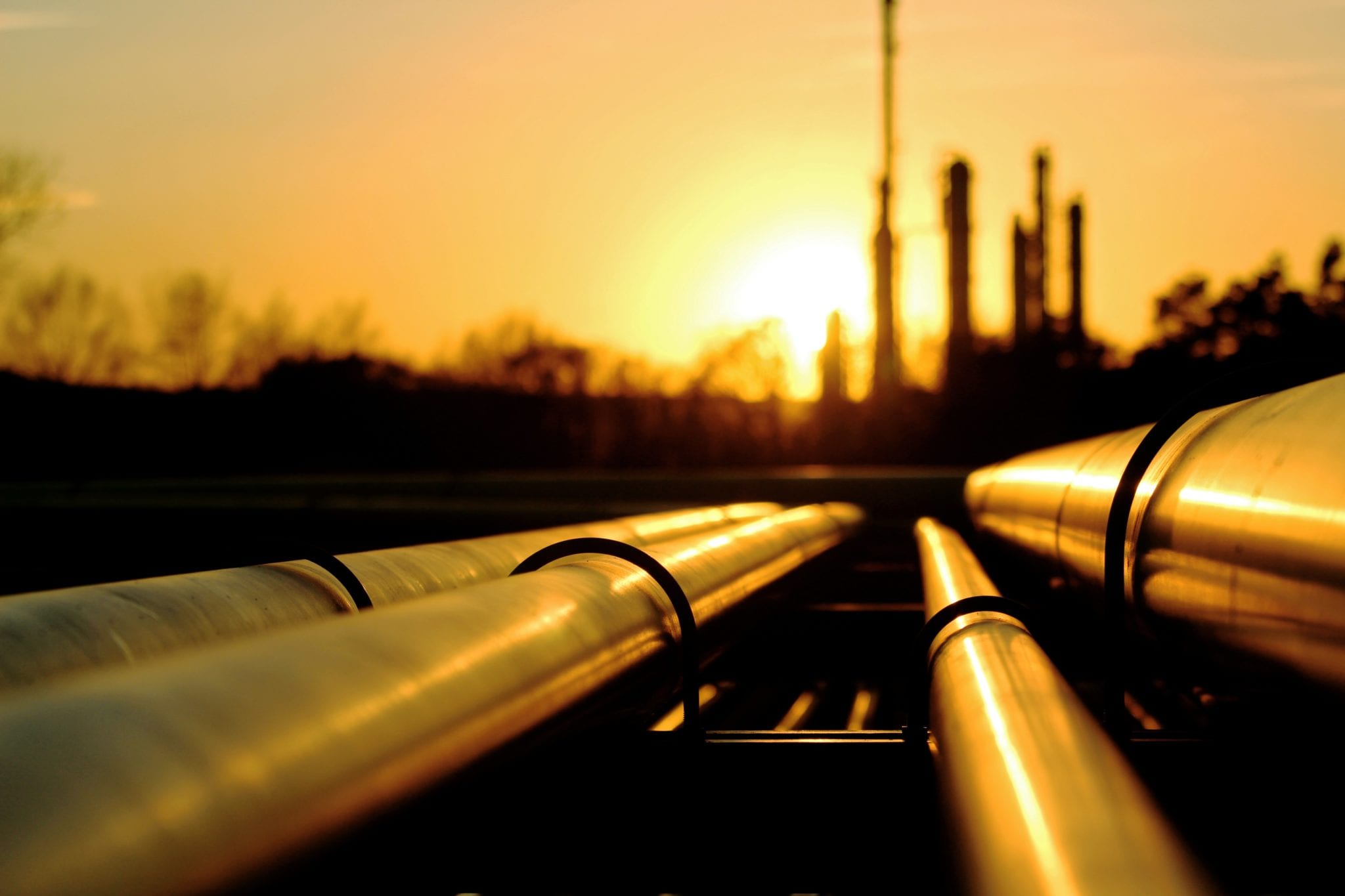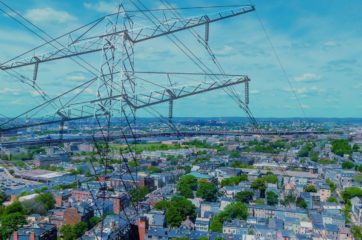by JONAH KURMAN-FABER, MARCH 15th, 2018
In their recent editorial, the Boston Globe doubled down on its support for new pipeline projects, claiming increased natural gas capacity as the answer to looming concerns of power supply constraints. Their editorials raise critical questions about whether the state should be expanding its natural gas pipeline capacity. In response, I set out to find out what is really happening with our energy supply and what impact it has on energy consumers in Massachusetts. I’ve investigated this topic in a piece published earlier this month, but let’s take a deeper dive into the subject.
WHAT DOES THE GLOBE CLAIM?
- Natural gas pipeline capacity was blocked in 2016 by the likes of Maura Healey, Sen. Mark Pacheco and Sen. James Eldridge, which has bottlenecked the amount of natural gas we’re able to transport into Massachusetts
- This bottleneck has forced us to rely on train and boat shipments of liquified natural gas (LNG) in order to get through cold snaps.
- In terms of emissions, fuel sources imported by train or ship are far worse than natural gas pipelines.
- Massachusetts’ energy grid will be in at risk for rolling blackouts in the next 20 years if additional pipeline capacity is not added.
WHAT’S THE STATE OF ENERGY IN MASSACHUSETTS?
Energy consumption in Massachusetts is over ten times greater than production. While we are applauded as the most energy efficient state in the nation, the state has virtually zero indigenous fossil fuel resources, meaning we must rely heavily on imported fuel sources –– namely natural gas through interstate pipelines. Due to sharply declining natural gas costs in the past fifteen years, New England has undergone massive transitions away from coal and petroleum-based power. As a result, the contribution of natural gas to Massachusetts’ energy sector has doubled since 2001.
As a result, Massachusetts has an addiction – a majority of both our home heating and electricity generation relies on natural gas. This is the true culprit of winter price spikes. In our coldest periods, when residents need to simultaneously heat and electrify their homes, regional price spikes hit Massachusetts particularly hard. Increasing our pipeline capacity, and consequently increasing our reliance on natural gas, would only further expose us to market volatility.


At the end of the day, price is the name of the game. When the regional price of natural gas spikes, electricity suppliers save money (and hence save ratepayers money) by burning imported fossil fuels. Building additional pipeline capacity will not solve regional issues of supply and demand, meaning that power generators will continue to burn dirty imported fuels during cold periods. If we want Massachusetts to stop burning shipments of LNG during cold snaps, we must stabilize energy prices by replacing natural gas reliance with renewable sources.
The Globe’s narrative suggests that pipeline capacity is strained during our coldest periods. This is far from the truth –– during the January cold spell, gas-fired power accounted for less than 20 percent of our electricity supply. And as previously mentioned, this was not due to pipeline constraints, but rather due to a spike in natural gas prices all over the US. When regional prices skyrocketed, power generators opted for cheaper and dirtier sources. However, renewable energy also played a big role in supporting drops in gas power, reaching as high as 20 percent of power supply. In other words, renewable energy is already matching natural gas during some of our coldest periods this year.
STILL, ISN’T IMPORTED OIL WORSE THAN NATURAL GAS?
While there are concerns to be had with the “life-cycle” emissions of oil shipments, the Globe is ignoring the brevity at which these sources are needed. Winter price spikes are typically limited to a handful of hours on our coldest days, when there is simultaneously high use of electricity and home heating. Thus, the environmental impacts of fuel shipments are miniscule compared to the massive impacts of new pipeline projects on local communities, which could sit idle for up to 95 percent of the year, according to the CLF. ISO-NE’s own annual reports demonstrate that even when burning more oil in the winter time, total emissions from New England’s electricity sector has declined three percent each year since 2012.
WHAT DOES THE FUTURE HOLD?
ISO-New England, the regional operator for the regional electric grid, has claimed that Massachusetts is at risk of rolling blackouts and other supply concerns in the not too distant future, partially due to pipeline constraints. However, the Conservation Law Foundation and other expert groups found serious flaws in the report, namely that they lowball the clean electricity and energy efficiency measures that are already happening in the state.
“In short, the study actually shows that if we ‘stay the course’ –– continue to move forward with renewables as required by state RPSs, continue with hydro and offshore wind procurements, and have a plan for dual-fuel (gas/oil) generators to refill their tanks just once during long cold snaps in the next 5 years, then we’re fine –– zero risk of fuel security-related problems,” comments David Ismay, senior staff attorney at Conservation Law Foundation. “Which also means, no need for a new pipeline.”
Ismay’s scenario is the most realistic future for the Massachusetts grid and gas infrastructure, yet ISO-New England continues to misinterpret their own results. The Massachusetts Attorney General’s Office, as well as Conservation Law Foundation, Union of Concerned Scientists, and several other organizations, signed a letter requesting that the report be modified to more accurately reflect trends in renewable energy, pipeline capacity, and dual-fuel generation.
The pricing burdens Massachusetts has faced this winter is a result of our addiction to natural gas. This burden cannot be relieved by pointing fingers at environmental advocates and demanding more pipelines. Instead, Massachusetts must diversify its dependency, invest in more renewable projects, and yes, burn a little oil. The true champions of affordable and reliable energy prices in Massachusetts are the very people that the Globe demonizes.
 JONAH KURMAN-FABER COMMUNICATIONS AND POLICY FELLOW
JONAH KURMAN-FABER COMMUNICATIONS AND POLICY FELLOW
Jonah is currently a Masters candidate of Sociology at Northeastern University, where he completed his Bachelors. He developed an appreciation for the environment at a young age, growing up on Lake Massapoag in Sharon, MA. He recently held multiple positions at Oxfam America as a grasstops and grassroots organizer, prior to which he served as an outreach coordinator for the Mass Save program. His academic expertise includes renewable energy policy, urban development, and gerrymandering. In his spare time, Jonah enjoys playing/coaching Ultimate Frisbee, traveling, and eating food he can’t afford.









